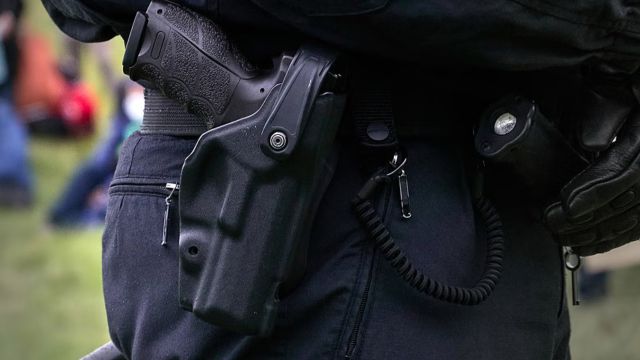In California, as in the rest of the United States, citizens are protected by the Fourth Amendment of the U.S. Constitution, which safeguards against unreasonable searches and seizures. However, there are exceptions to this rule, particularly when it comes to searches conducted without a warrant.
One common question that arises is whether police officers in California can search your bag without a warrant. In this article, we’ll break down the law surrounding warrantless bag searches in California and what your rights are in such situations.
The Fourth Amendment and Warrantless Searches
The Fourth Amendment guarantees that people have the right “to be secure in their persons, houses, papers, and effects, against unreasonable searches and seizures.” This means that, in most cases, law enforcement cannot search you or your belongings, including bags, without a warrant issued by a judge or magistrate. However, there are several exceptions to this rule, where warrantless searches are considered lawful under certain circumstances.
Can Police Search Your Bag Without a Warrant in California?
Yes, in California, like other states, there are circumstances where law enforcement can legally search your bag without a warrant. While the general rule is that a warrant is required, there are key exceptions to be aware of:
1. Probable Cause
Police can search your bag without a warrant if they have probable cause to believe that it contains evidence of a crime. Probable cause is a reasonable belief, based on facts or circumstances, that a crime has been, is being, or will be committed. For example, if a police officer observes you engaging in illegal activity, such as selling drugs, and has reasonable suspicion that your bag contains illegal substances, they may have probable cause to conduct a search.
2. Consent
If you voluntarily give consent, police officers can search your bag without a warrant. The key here is that the consent must be given freely and knowingly. Officers are required to inform you that you have the right to refuse the search. However, if you are coerced or pressured into allowing the search, it may not be considered valid. In situations where consent is granted, the search is legal even without a warrant.
3. Search Incident to Arrest

Another common exception to the warrant requirement is when a search is incident to an arrest. In California, if you are arrested, police are allowed to search your person and any items in your immediate control, including bags, without a warrant. This is to ensure that no weapons or evidence of the crime are within reach that could harm officers or be destroyed. However, the scope of the search is typically limited to the immediate area around the arrest.
4. Exigent Circumstances
If police officers believe that immediate action is necessary due to an exigent circumstance, they may search your bag without a warrant. Exigent circumstances refer to situations where law enforcement faces an urgent need to act, such as preventing the destruction of evidence, protecting public safety, or preventing the escape of a suspect. For example, if an officer hears gunshots and sees you running away with a bag in your hand, they may have cause to search the bag immediately to ensure it doesn’t contain a weapon or evidence of the crime.
5. Public Safety Exception
Gun vs. Parking Spot: Police Report on Alarming Altercation
There is also a public safety exception to the warrant requirement, where a search may be justified based on concerns for public safety. In certain high-risk situations, such as during a traffic stop, police officers may conduct a brief search of your bag if they believe it may pose a threat to their safety. For example, if a driver is pulled over for a routine traffic violation and officers suspect there may be a weapon in the car or in a bag, they may search without a warrant for officer safety reasons.
6. Plain View Doctrine
Under the plain view doctrine, police officers may search your bag without a warrant if they have a legal right to be in the area and can clearly see evidence of a crime in your bag. For instance, if a police officer is lawfully present in your home or car and observes a bag that is open with illegal substances in plain sight, they may search the bag without a warrant. This doctrine applies to any item that is clearly visible to an officer while they are in a location where they have the right to be.
What Should You Do if Police Ask to Search Your Bag?
If police ask to search your bag, you have rights. Here’s what you should know:
- You can refuse the search: If the police do not have a warrant or a legal reason to search, you can refuse to allow them to search your bag. If they do not have consent or probable cause, a search without your permission could be considered illegal.
- Be respectful: While you have the right to refuse the search, it’s essential to remain calm and respectful. You can politely decline the search without escalating the situation. For example, you can say, “I do not consent to a search of my bag.”
- Know your rights: You are not obligated to provide consent, but if you do, the search is considered legal. If you refuse, and the officer insists on searching, ask if you are being detained or if you are free to leave.
Conclusion: Know Your Rights and Stay Informed
In California, police officers can search your bag without a warrant under specific circumstances, such as probable cause, consent, or during an arrest. However, it is important to understand your rights to ensure that you are not subjected to an unlawful search. Always be aware of situations where you might be vulnerable to a search, and remember that if you are ever unsure whether a search is legal, you can ask the officers about their authority to search your belongings. If you feel that your rights have been violated, it’s essential to consult with an attorney who can help guide you through the legal process.
Ultimately, understanding the laws around warrantless searches in California can help you navigate situations with law enforcement and protect your constitutional rights.




More Stories
Safety Fast! California Police and Bag Searches: What Does the Law Say About Warrantless Searches?
Safety Fast! California Police and Bag Searches: What Does the Law Say About Warrantless Searches?
Safety Fast! California Police and Bag Searches: What Does the Law Say About Warrantless Searches?